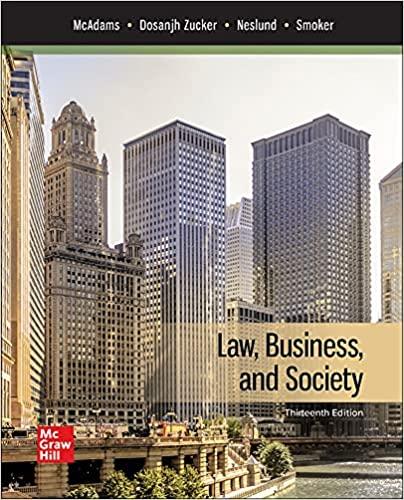Conservative activists, Republican lawmakers, and others in recent years have reasserted the historical constitutional law theory of
Question:
Conservative activists, Republican lawmakers, and others in recent years have reasserted the historical constitutional law theory of nullification to attack what they take to be a broad pattern of unconstitutional usurpation of power by the federal government. Nullification advocates are furious over the imposition of national laws and court orders governing highly volatile issues like gun control, abortion, same-sex marriage, and the Affordable Care Act. Each state, according to nullification theory, can, by its own judgment, invalidate (nullify) federal laws it takes to be unconstitutional. For example, if Arizona believes federal immigration rules to be unconstitutional, it can, according to nullification proponents, declare the federal law unconstitutional and forbid its enforcement in Arizona by the federal government. Nullification theory is rooted in the 10th Amendment and in the reasoning that the states preceded and created the federal government, which exists only by the will of the states. Each state, therefore, can make its own decisions about which federal laws are constitutional in that state. Nullification is related to, but is not to be confused with, neo-nullification, in which a state does not expressly declare a federal law unconstitutional but refuses to enforce the law within its jurisdiction. Neo-nullification best describes the movement to legalize marijuana at the state level. Nullification has become a powerful expression of states’ rights and of resentment toward the federal government. No federal court decision, however, has ever validated nullification. The Supreme Court unanimously rejected a form of it in at least one instance, and it appears to be in direct conflict with the Supremacy Clause (which is discussed in Chapter 8).
Questions
1. Constitutional law aside, do you think the federal government has asserted too much authority over issues such as same-sex marriage, abortion, marijuana use, and gun control? Explain.
2. Would the nation be improved if each state could more nearly make its own laws about those matters? Explain. For a brief history of nullification, see Robert A. Levy, “The Limits of Nullification,” The New York Times, September 3, 2013 [www.nytimes.com].
Step by Step Answer:

Law Business And Society
ISBN: 9781260247794
13th Edition
Authors: Tony McAdams, Kiren Dosanjh Zucker, Kristofer Neslund, Kari Smoker





